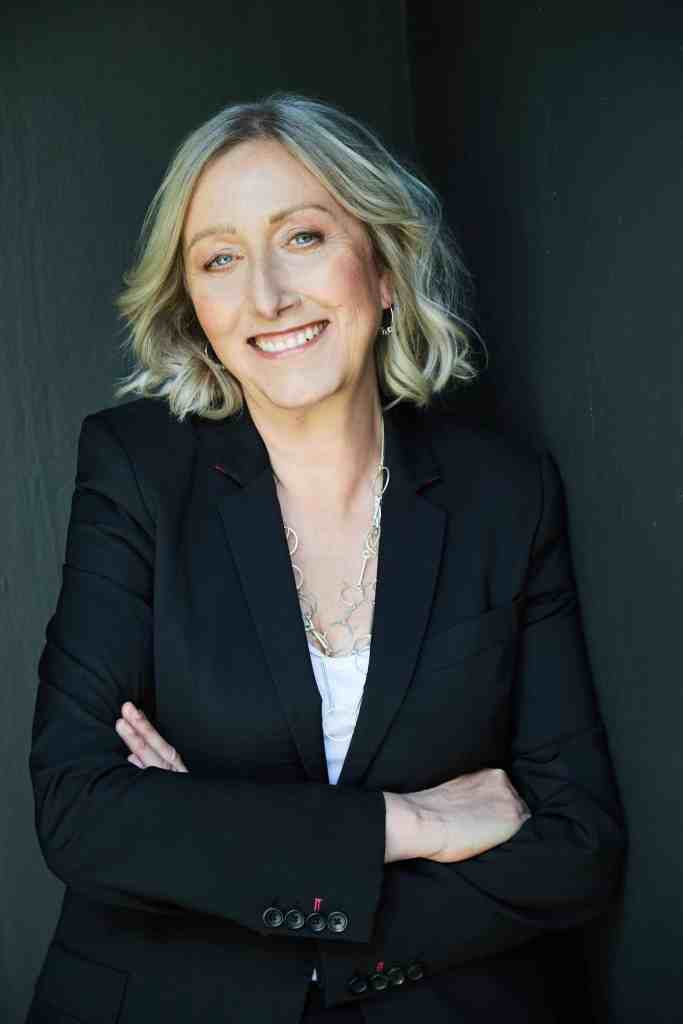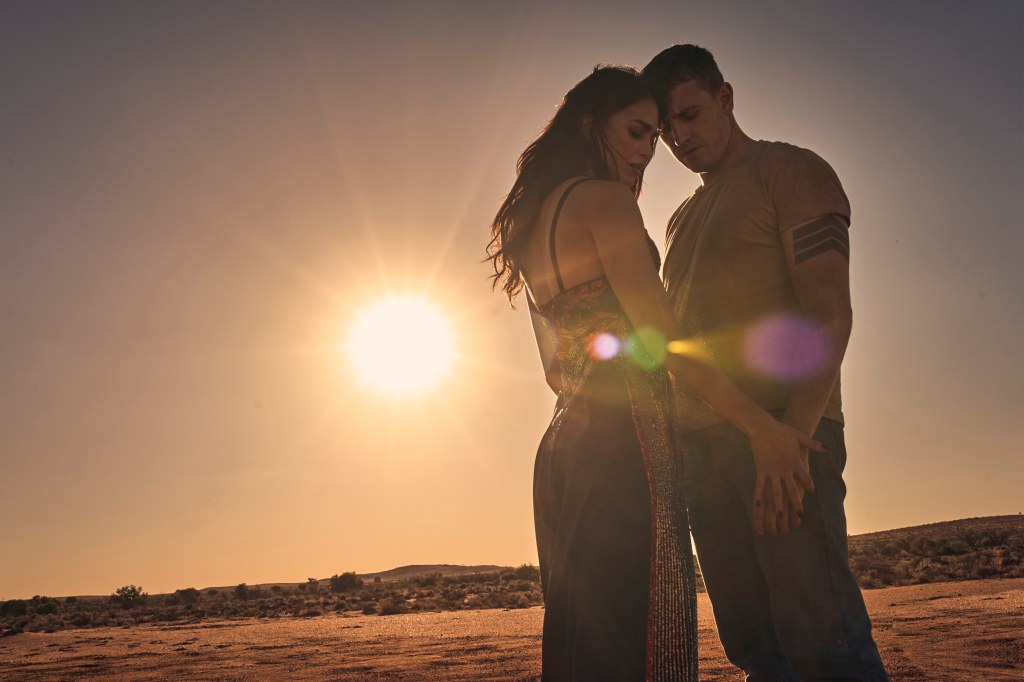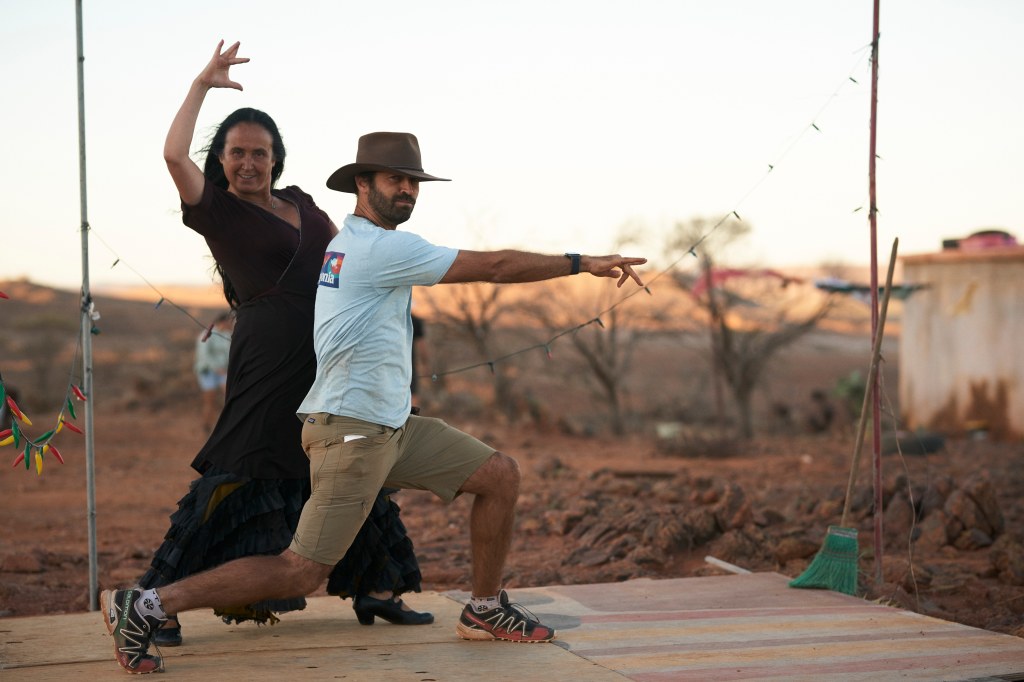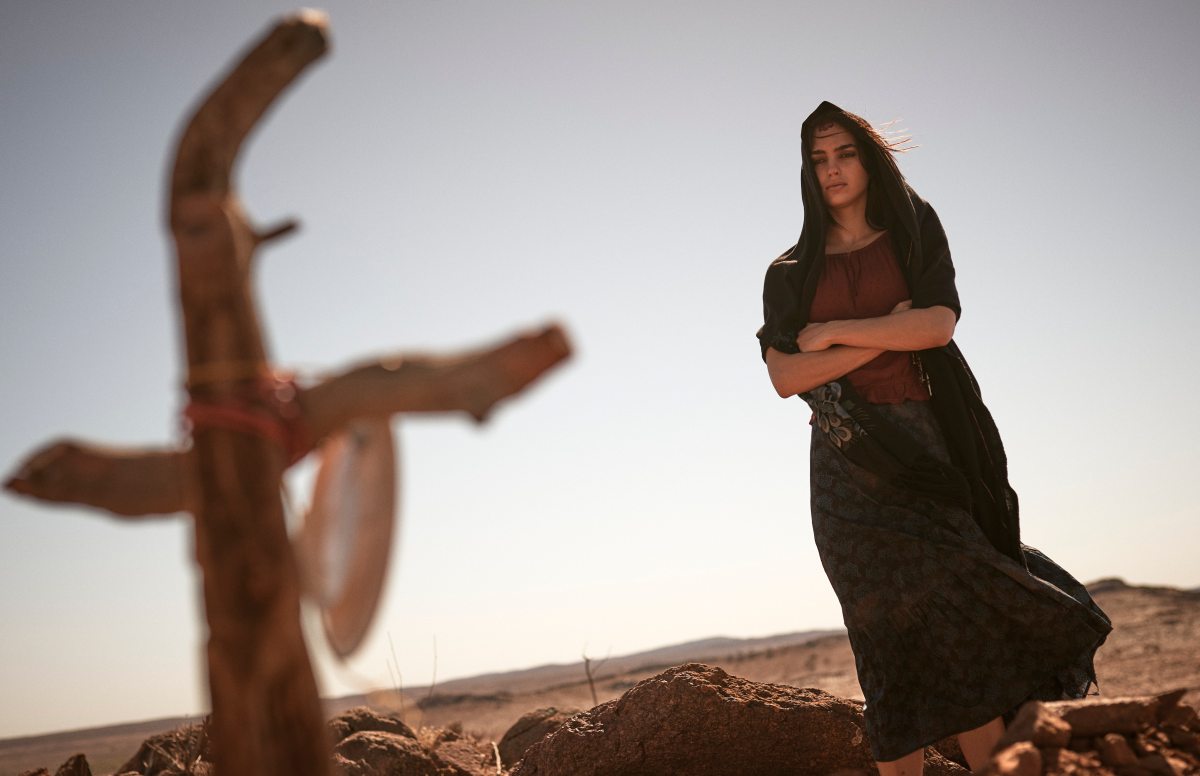Rosemary Blight is the Australian co-producer of Carmen, a debut feature film from French dancer and choreographer Benjamin Millepied that reimagines Bizet’s iconic opera as a tale of two lovers running from authorities on the Mexican-US border.

Melissa Barrera and Paul Mescal play the leads, Carmen and Aiden, with the Sydney Dance Company filling out the landscape with mesmerising dance sequences set to Nicholas Britell’s original score.
Blight has been principal partner and company director with Goalpost Pictures since 1992, where she’s produced films such as The Sapphires, The Tree, and Clubland.
She sat down to talk with me about the challenges and rewards of producing for a first-time director, watching cinematographers become dancers, and how she had a hand in Paul Mescal’s casting.
Hi Rosemary – tell me about Carmen, what attracted you to the project and how did you get involved?
It was one of the rare gifts that Covid brought. In amongst all that hardship I got a phone call from Benjamin Millepied, who said he and his family had decided to move to Australia. He had an idea for a film and he basically said ‘would you like to make it in Australia with me?’ and I went ‘Yes!’. It was one of those calls where, because I knew who Benjamin was and I really admired him as a choreographer and artist, it was so easy to say yes.
Was it tempting to use Bizet’s music?
Yeah, it was. Before I came on board, Nicholas Britell and Benjamin had been working together on a reimagining of the music of Carmen. Benjamin had always wanted to do his version of Carmen with a choreography-based approach. So he got together with Nicholas Britell, who is an old friend of his, and they started working on something brand new.
There is a slight nod to the original music where the original libretto is heard throughout the movie as a chorus sung in French. So you’ll hear the original words used in the original score. But apart from that, it was a total reimagining. The music is so well known that the question of how do you make Carmen feel new was answered by completely re-imagining it.
What has your role as producer meant on this film in particular?
Every producer is different, but my approach and the approach of the producers at Goalpost is, number one: we’ve got to fall in love with the work and with the dreams of the director or writer. Then it’s about keeping your eye on the whole. You’ve got to be involved in the not-very-interesting things, like making sure there’s enough money and sorting out contracts and all that.
My job on this film was to see what Benjamin was bringing, and then to try and complement what he was doing. Benjamin brought in the world class dancers from the Sydney Dance Company as our core dance group, and he taught me how to work with dancers and what they required. What I brought to him was what I believe to be some of the best Australian creative talent, in the form of Dany Cooper as the editor, Emily Seresin on costumes, and Steven Jones-Evans on production design.
I should acknowledge it’s a French-Australian co-production. So I had French co-producers, Mimi Valdes and Dimitri Rassam, and I won’t claim to have done it all by myself. My job was mainly facilitating the challenging shoot during peak Covid times.

Do you often collaborate with international co-producers?
Yeah, I’ve worked in New Zealand before on Cleverman, and I was executive producer of a film called The Tree, which was produced by a wonderful Western Australian producer called Sue Taylor, and that was a French Australian co-production as well.
What we find with independent filmmakers, being an independent company ourselves, is that money goes a lot farther if you can bring those two worlds together. Right now we [Goalpost Pictures] are looking at a co-production in Taiwan, we’re looking at a TV series in South Africa, and another film with New Zealand. It gets you more bang for your buck and also extends your world to different influences.
The main cast of Carmen is incredible – did you have a hand in selecting them?
Not all of them, but I was involved in Paul Mescal’s casting so I’m gonna claim that one. I was watching it the other night at a festival and I was still surprised to see that he was in it!
Melissa Barrera, who plays Carmen, is an extraordinarily talented Mexican actor who was brought on very early by Benjamin. In fact it was just Benjamin, Nicholas and Melissa for quite a long time. When the film got introduced to me, there was a ten minute dance piece with Melissa dancing to a demo of Nicholas’, with Benjamin running around her with a handheld camera. So that’s how I met Melissa.
It was always a dream of Benjamin’s to have Rossy De Palma, I mean he wrote that part [of Masilda] for her. One of the great pleasures of my life was meeting Rossy De Palma. She is a powerhouse – I’m sure she won’t mind me saying that. She came to Australia from Spain in the middle of COVID and had to be quarantined. She did all that without really knowing who we were, but she did it because she believed in Benjamin and what he was trying to do.
Jamie Dornan was originally cast as Aidan but was replaced by Paul Mescal – was that due to a scheduling conflict?
Cinema is always about timing.
Well, Paul Mescal is definitely a great get.
Absolutely. We all fell in love with him from Normal People and Aftersun. When I had my first conversation with him it was six months before the shoot. He learnt how to box, how to dance, how to play guitar – he knew none of that. Of course he had musicality, and he can sing. But the rest of it he learnt from the ground up. That’s his understanding of what it takes to engage with a role. He just threw himself right in there.
Read: Aftersun review: memories linger as all else fades
It was particularly interesting how Benjamin dealt with Paul being a beginner dancer, because even though Melissa isn’t a trained dancer either, she has a natural ability. She kept up with all these athletic dances. With Paul, Benjamin understood that what he needed to do was not make him a ballet dancer, but to find the natural sort of grace in him. There’s a real muscularity and athleticism to the way he moves.

What’s the most challenging thing about producing a film from a first-time director?
It’s sort of exciting, because you have no idea what’s going to come next. What I’ve learned about the dance world is that you can come into the rehearsal room and say, ‘Okay, today everyone is gonna go to the left instead of the right’, and that change can be adopted immediately. But when you’re on a film set, you’ve got to have more detailed plans, because if you move you’re moving 200 people with you.
On Carmen I had to learn to allow the fluidness of a choreographer’s approach to film, and to make sure that all heads of department understood it was going to be a different – but exciting – experience. They were all very experienced workers who ended up embracing that more organic approach to filming. In the end, everyone just wanted to keep going because it was so much fun. It was so rewarding and creatively exhilarating to be a part of.
I thought the choreography, and the cinematography, were both stunning.
We did lots and lots of rehearsal with the camera. The dancers rehearsed for months, then the actors turned up and they rehearsed with the dancers, and then we got the camera team in – much earlier than I normally would on an independent movie. And then they rehearsed with the dancers. Literally, the camera operators had to learn how to dance too, to move around and capture the choreography in the way that Benjamin wanted.
We ended up having to get a dedicated physio in for the DOP [Jörg Widmer], because dancing is very much an athletic sport and if you’re not used to it it can be very hard on you. I must say though that I saw him recently and he’s totally fine!

There is a lot of debate over whether international productions are unfairly given precedence when it comes to Australian screen industry resources – what are your thoughts on this?
I think it’s a real balance. With Carmen, it was a co-production, and Benjamin is currently an Australian resident. So there was a real joining of international and Australian creatives, and to me that felt right.
This is just my opinion, but I think we need to be careful not to lose sight of the reason why we want Australian films made. We want Australian films made because we want our Australian storytellers to talk about what’s going on in our world now. And with such a crowded marketplace, I think it’s about balance, because the aim shouldn’t be that no international productions are made here. But when you have huge movies coming down here, that balance can be quite challenging. It affects our crew costs, crew levels and crew availability.
For me, it’s about finding and keeping a space for the new, emerging filmmakers to actually have a look in. It’s so much tougher than it was when I started to make movies. So I do think we have to keep an eye on how we spend money and how it’s distributed.
The film has already premiered in the US and France, and it opens in Australia on 13 July – how do you hope the Australian public will respond to Carmen?
I really hope the Australian public will go and see it in the cinema! I know filmmakers say this all the time, but it is truly a cinematic experience. If you want to escape, if you want to be immersed in beauty and music, then this film is for you. Everyone who worked on this film is creating art at the highest level, and I hope people will take the opportunity to go and see their work.
Carmen is out in Australian cinemas from 13 July.





